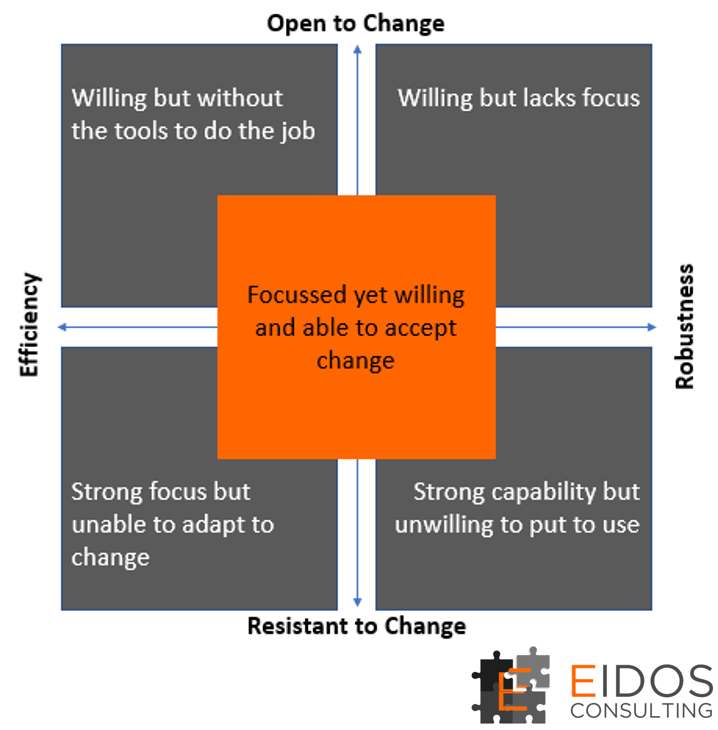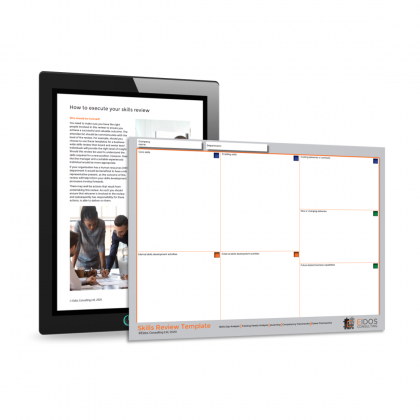Efficiency and robustness in your approach to workforce development. Ideally we would like to achieve both, but this is somewhat of the Holy Grail for L&D professionals that never seems to be fully achieved. Why is this? Improvements are being realised all the time in achieving a higher quality of training, using blended learning to limit time spent training away from work and finding tangible savings to make the most of your L&D budget, so why is it that we cannot achieve both?
One word; Change.
If the manufacturing world were to remain static, even for a short while, then we could ensure we were sufficiently developing individuals to complete their work activities (robustness) while seeking ways to reduce cost and effort to develop the skills that they require to do the same tasks day in, day out (efficiency).
But what then happens when you introduce a new technology, or you win a new contract that brings with it completely different set of customer demands?
There are a few routes available to you here;
- You could seek to ensure your staff are developed robustly enough to accept any job or change that comes their way (i.e., over trained). This will ensure that your employees are open to and able to deal with change, but it is an extremely inefficient way of developing your workforce. It will require a substantial training budget and dedicated resource to manage the development activities.
- You could focus your efforts on achieving maximum efficiency. This would manifest as just-in-time development with the minimum of expense and effort given to developing your workforce to a skill level that just meets your existing requirements. This will translate to focused training interventions that are not superfluous and minimise the impact to the individuals working activities, but this is a reactive approach that will mean you are unable to react to change.
- Finally, (and most likely), you can look to settle somewhere in the middle. Different businesses will position themselves differently on this scale depending on their priorities. If you are a manufacturer that embraces new technology and has a wide and varied customer base, then I would say you would most likely position yourself more towards robustness; likewise if you have fewer but longer term clients and a defined set of product, then efficiency may well be your focus.

In today’s ever-changing manufacturing industry, we need to ensure we are preparing for the change that the future will bring, whilst at the same time seeking efficiencies in our approach to training and development. To ensure you are maximising your training budget, make sure to;
- Assess your training needs beforehand to ensure the training you procure is going to meet your needs,
- Ensure that you are aware of the skills that exist within your workforce and where gaps occur, as this will enable you to focus your development activities to fill these gaps, and,
- At the same time, you need to ensure your business is accepting of change, which can be achieved through developing talented individuals and ensuring you have depth in capability across your workforce; you need those that focus on mainstream activities as well as employees that focus on new solutions or how they can develop themselves or the business to meet future demands.
This way, your business can change with the times whilst maintaining a focus on effective, efficient development of your workforce. As previously alluded to, there is no right or wrong approach to this, as each business has different means and different drivers, but it is key to understand where you position your business on the scale, (as per the model we have developed), so that you can understand your current positions vs. where you require to be to meet the needs of your business and your customer base.

Need to carry out a company wide or departmental skills review?
Request a workforce skills review workshop to build an understanding of the skills requirements in your business and how these requirements are currently being met.
Find out more about skills review workshops